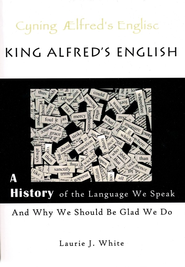
.
Grading Essays Made Easy |Homeschool Life | Literature | Miscellaneous
Proofreading Tips | Writing Prompts
Writing/Teaching Tips | All
.
 Want homeschool writing tips? Encouragement? Help grading those essays? Practical advice for your homeschool writing class? Insights into literature? Free writing prompts and tutorials?
Want homeschool writing tips? Encouragement? Help grading those essays? Practical advice for your homeschool writing class? Insights into literature? Free writing prompts and tutorials?
Whether your student is reluctant or brimming with excitement, you’ll find solid, proven ideas here that will make your teaching life easier. And take advantage of the many writing prompts and tutorials posted here.
Subscribe to Writing with Sharon Watson and receive three FREE writing lessons. Just use the subscription form in the column to the right.
Be sure and browse the weekly writing prompts for middle schoolers and high schoolers.
This page may contain affiliate links..
Courage: Show, Don’t Tell
“You can never cross the ocean until you have the courage
to lose sight of the shore.” –Christopher Columbus
Show, Don’t Tell
When an author wants to let readers know that a character is, say, courageous, she doesn’t write, “Chris was courageous.” Instead, she sets up a situation in which the character has to act bravely, even if he or she feels fearful, showing just how courageous the character is.
Christopher Columbus showed courage by doing something—crossing an ocean when many believed he would fall off the edge of the earth into oblivion.
“Show, don’t tell” is an important element of writing stories. You don’t want to insult your readers by telling them how characters feel or what a character is like. You want to show them by (more…)
Paragraph Chart: High School
Many students tell me that after they do the hard work of coming up with an idea, they do not know what to put in the paragraph or even how to write the paragraph.
Is this an issue for you as well? Could you use a little help in this area?
{Looking for the MIDDLE SCHOOL version of this tutorial? >>}
In-text Citations for Middle School Students
You want to avoid plagiarism in your writing. Yes. Yes, you do.
Plagiarism is using someone else’s quotation, facts, statement, idea, or story without giving them credit.
So, how do you let your readers know that you borrowed the quotation, fact, and so on?
You cite your source by using an in-text citation. This simply means you are giving credit to someone for their information, and you tuck it into your essay.
An in-text citation comes in tremendously handy when you are writing an essay that does not include footnotes, a bibliography, or a works cited page.
This is a tutorial on how to easily create in-text citations. Robin Hood may be involved.
Here we go . . . (more…)
In-text Citations for High School
You’re writing your essay and everything’s going great until you realize you need to let readers know where you got a certain fact. You aren’t using a bibliography, footnotes, or works cited page because this is just an essay, not a report or research paper.
You don’t want to plagiarize. Putting someone else’s fact or idea in your essay without any citation would definitely be plagiarism.
What are you going to do? (more…)













